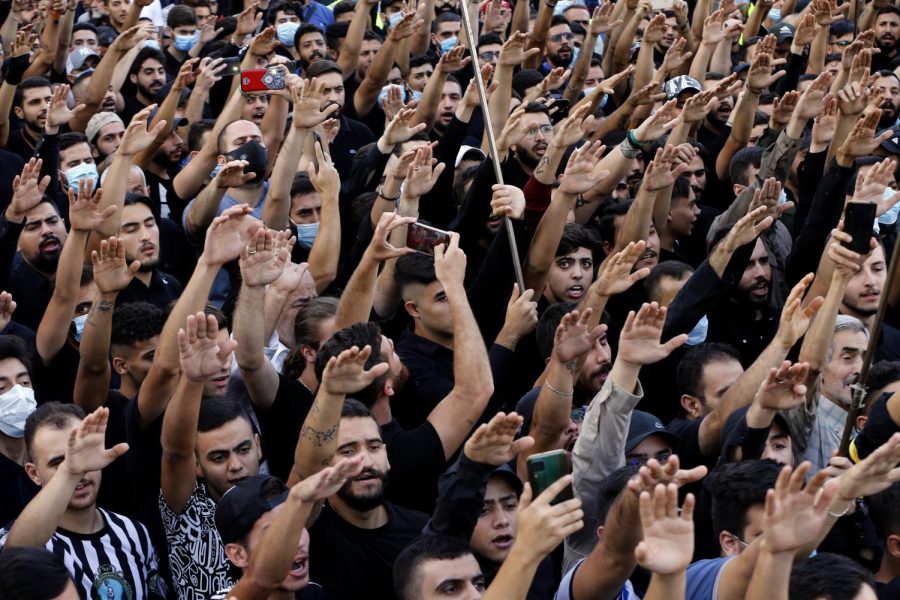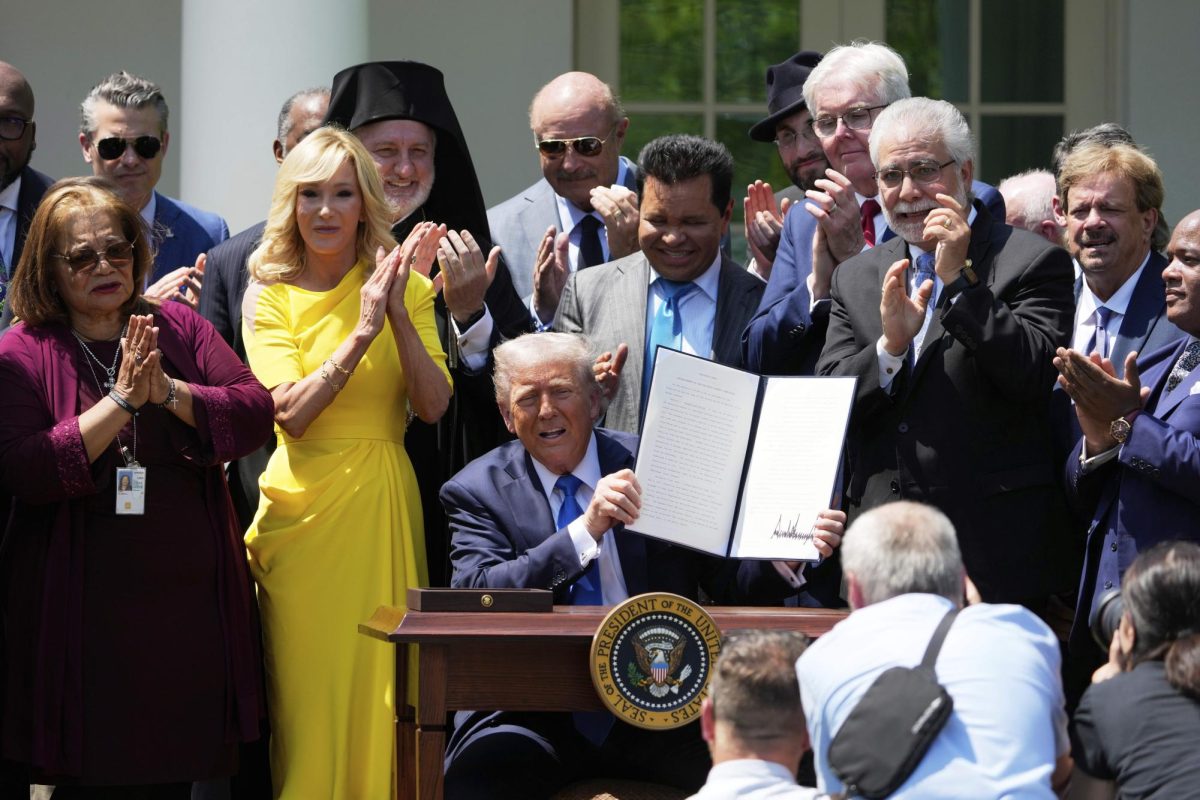Lebanese Government Structure to Blame for Conflict
Large groups of Lebanese mourners raised their hands at the funeral of three Hezbollah supporters killed Thursday.
October 22, 2021
On Oct 14, protestors from the Hezbollah and Amal Movement gathered in Beirut to call for the removal of the judge charged with determining the source of the 4 Aug 2020 explosion. Suddenly, sniper shots rang out from nearby high buildings. Hezbollah blamed the Lebanese Forces, a Christian political party that opposes them, for firing the initial shot. Fighting ensued, the clash leaving six dead, according to the New York Times.
Conflict like this is nothing new to Lebanon, however. But why?
The Lebanese government’s setup is mainly to blame for all the conflict the small country faces. Their system, designed to promote cooperation between religion-based political parties, has the opposite effect.
In Lebanon, all three branches of government are split. The president must be Maronite Christian, premier a Sunni Muslim and speaker of the National Assembly a Shi’ite Muslim. Members of the cabinet and parliament must also represent a balance between Christian and Muslims (including Druze). Deliberate sectarian balance was designed to prevent conflict, not cause it.
But it also limits the country to religion-based political parties, such as Hezbollah, which, although also acting as a legitimate political party in Lebanon, is also Iran-sponsored and considered a terrorist organization by the United States. This presents another issue: the clean-cut correlations between political parties due to reliance on religion make Lebanese politics an easy target for external influences.
And that leads to corruption. Transparency International ranked Lebanon 137 out of 180 on their Corruption Perceptions Index. BBC says, “corruption ‘permeates all levels of society’ in Lebanon, with political parties, parliament, and the police perceived as ‘the most corrupt institutions of the country.’”
But, without the political sectarianism present in their government, it would be more difficult for external players to influence their politics and division wouldn’t be as strong between political parties. The removal of the system forcing religion-based parties will be necessary for Lebanon to regain peace.












